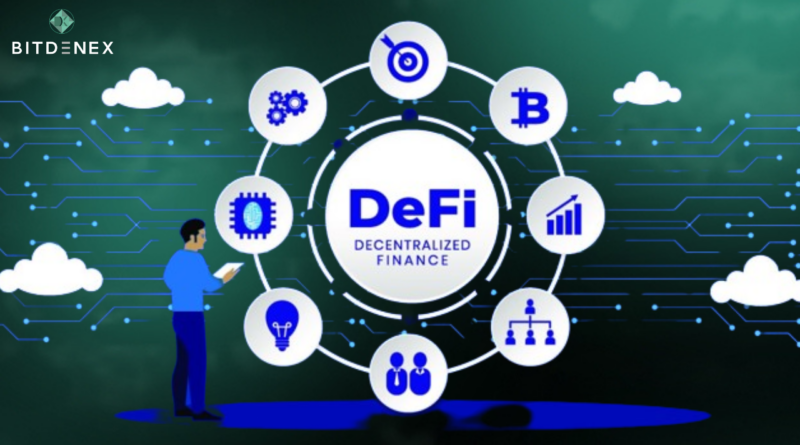What is DeFi and How Does it Work?
To begin, understanding DeFi requires an understanding of our current centralized banking system. Different regulators have typically overseen financial services markets. To obtain financing, one must deal with financial intermediaries for vehicle loans, mortgages, brokerage accounts, investment accounts, stocks, and bonds. Regulators establish the guidelines and procedures that consumers must follow to open a bank account, borrow money, or invest. To gain access to money through these services, we must follow certain laws and regulations.
DeFi represents an alternative strategy. Unlike traditional banks and investment businesses, DeFi financial services firms offer banking and financial services, such as lending, investing, and management, using digital assets rather than fiat currency.
Defi vs Traditional Banking
In the existing banking system, a customer creates a savings account and receives interest on the deposit. The bank lends the money you and other customers have placed to another customer or business at a higher interest rate, profiting from the difference. The premise behind DeFi, using the example above, is that you can earn the full amount of interest paid by the borrower rather than a lower amount determined by the bank.
What is the technology behind DeFi?
If you are familiar with cryptocurrencies, you have most likely heard of Bitcoin and Ethereum. They are two of the most popular cryptocurrencies in an ever-expanding and diverse market.
Bitcoin and Ethereum are not simply cryptocurrencies. They are based on blockchain technology, which is a decentralized digital record that tracks Bitcoin and Ethereum transactions. Blockchain technology enables users to acquire, trade, and invest in digital assets such as cryptocurrency. DeFi employs blockchain technology to enable users to engage in financial operations without regulatory monitoring and to manage finances on a peer-to-peer basis. DeFi blockchain technology is powered by programs known as “dApps” and “protocols” that allow users to access applications from anywhere in the world.
Risks of DeFi
Alternative financial services companies are typically unregulated or operate illegally in regulated environments. As a result, DeFi markets lack many of the safeguards afforded by licensed service providers. You should exercise caution when considering investing in unlicensed financial products on unregulated sites. DeFi is an emerging technology, thus the dangers are different than in existing markets.
Consider these points before deciding if you want to get involved in DeFi:
- Provinces do not control these types of depository accounts or products because they are based on cryptocurrencies rather than fiat money. Do not invest more than you can afford to lose.
- There are no restrictions or guidelines on who may use DeFi, therefore anyone can create a crypto wallet or access DeFi protocols. Do your homework and comprehend the technology. Although it is accessible to all, it may not be appropriate for everyone.
- You should be wary of claims of full transparency and security and understand what the actual risks are. Despite the fact that blockchains are nearly impossible to alter, most alternative banking services rely on software systems that are vulnerable to hackers.
- There are no consumer protections for DeFi. The parties involved in a transaction could be located anywhere in the world, so you might not be able to get your money back should a transaction go wrong.
- To borrow funds with DeFi, a borrower must typically put an equal quantity of digital assets on the blockchain as collateral. This implies you can usually only borrow money equivalent to what you already have. If you fail to make loan payments, the DeFi protocol may be able to automatically remove your posted collateral without providing you with any warning or opportunity to protest.
- DeFi requires a private key to protect your cryptocurrency wallet. A private key is a long, unique code that only the wallet’s owner knows. If you lose your private key, you will lose access to your funds; there is no way to retrieve a lost private key.
- A typical investor may find it difficult to distinguish between DeFi opportunities that have real value and those that are scams due to the complexity of the various lending and borrowing mechanisms at play.
- There is a good chance the service and the people selling it are registered if it looks like an investment, lending, or banking opportunity. Make sure you use caution before investing in an unregulated marketplace operating illegally.
Bottom Line
As with any new technology, investors can expect to see many investment opportunities. They may also expect to see a large number of scammers looking to take advantage of sophisticated or difficult-to-understand services. Before you invest, make sure you understand what you’re getting into and conduct research.

